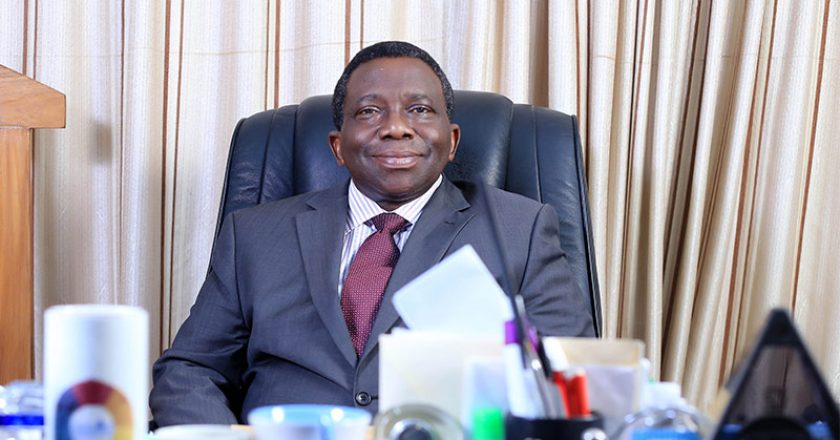Nigeria will require N2.2 trillion to implement comprehensive cervical cancer interventions between 2026 and 2030.
Prof. Isaac Adewole, chairman, National Task Force on Cervical Cancer Elimination (NTF-CCE) and former minister of health, made this known during the launch of the Partnership to Eliminate Cervical Cancer in Nigeria (PECCiN) in Abuja, yesterday.
PECCiN, an initiative of the National Task Force on Cervical Cancer Elimination (NTF-CCE), launched at the State House by Mrs. Oluremi Tinubu, aims to accelerate Nigeria’s implementation of the World Health Organisation’s (WHO) 90-70-90 targets. The initiative focuses on multi-sectoral action for preventing, screening, and treating cervical cancer through sustained coordination, resource mobilisation, and scaling up service delivery.
According to Adewole, the interventions are grouped into three categories: primary prevention, secondary prevention, and tertiary treatment. He explained that the Human Papilloma Virus (HPV) vaccination programme will be delivered through fixed sessions at health facilities and outreach-based immunisation campaigns.
“The total direct implementation cost over the five years is estimated at N387.52 billion. Including administrative and supervisory costs, the total cost of HPV vaccination will amount to N426.28 billion.”
He said cervical cancer screening over the same period is estimated to cost N351 billion, targeting 14.4 million women.
On tertiary treatment, Adewole noted that nearly 300,000 women will require care for invasive cervical cancer between 2026 and 2030.
“The country is projected to spend approximately N1.42 trillion on treatment, with the cost per patient dropping from N8.7 million in 2026 to N4.1 million by 2030,” he added.
In spite of other competing priorities, he urged investment in cervical cancer elimination due to its high return on investment.
“We seek your commitment and support to implement robust cervical cancer elimination interventions in Nigeria.
“This will ensure that every woman is financially protected throughout her life and no eligible adolescent is left behind in HPV vaccination.”
Meanwhile, the Nigeria Governors’ Forum (NGF) has pledged to eliminate cervical cancer in Nigeria.
Chairman of the Forum, Governor Abdulrahman Abdulrazaq of Kwara, who was represented by Imo State Governor Hope Uzodimma, at the launch, regretted that in spite of being preventable and treatable, cervical cancer remained a leading cause of cancer deaths among Nigerian women, with nearly 100,000 new cases annually.
He affirmed governors’ commitment to fast-tracking policy adoption at the state level, allocate domestic funding, and strengthen primary healthcare systems to ensure equitable service delivery. “The governors will also collaborate with partners to improve access to screening, vaccines, and education, particularly in rural and hard-to-reach areas.”
Dr. Muyi Aina, executive director, National Primary Health Care Development Agency (NPHCDA), announced that 14 million girls had already received the vaccine since the Federal Government launched the HPV vaccine campaign on October 24, 2023, targeting girls aged 9 to 14.
“This milestone is unprecedented globally and was achieved through strong leadership from President Bola Tinubu, the support of the First Lady, and collaboration across ministries and communities.
Aina reaffirmed the agency’s commitment to sustaining the programme, stating that the HPV vaccine has been incorporated into the routine immunisation schedule and that primary healthcare centres are being revitalised to support service delivery.
Prof. Usman Aliyu, director-general, National Institute for Cancer Research and Treatment (NICRAT), described cervical cancer as a serious burden affecting mothers, sisters, caregivers, and peers across communities.
He said the growing burden prompted the development of the National Strategic Plan for the Prevention and Control of Cervical Cancer (2023–2037).
“This plan, reflecting best practices and local realities, serves as our national roadmap for cervical cancer elimination,” he said.
WHO Director-General, Dr Tedros Ghebreyesus, hailed the First Lady’s leadership, emphasising Nigeria’s strong role in global cervical cancer efforts.
“Since 2018, Nigeria has supported WHO’s call for elimination and co-led the establishment of World Cervical Cancer Elimination Day on November 17.
“Nearly 17 million girls have received the HPV vaccine, and screening services continue to expand nationwide.”
In a goodwill message, Roche Diagnostics General Manager Roberto Taboada highlighted the importance of vaccination and proper screening to prevent cervical cancer, pledging Roche’s support for affordable and accurate HPV DNA testing in Nigeria.
Similarly, Ms. Vuyokazi Mjekula, Director of External Affairs at Merck Sharp and Dohme South Africa, promised continued supply and improved access to high-quality HPV vaccines.

